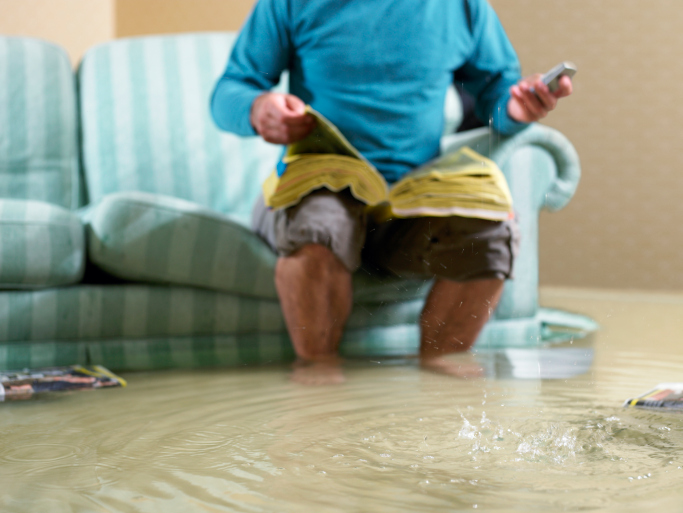How landlords can protect themselves from flood bills
With another wet winter in progress and the storm clouds not looking like going away any time soon means that properties are increasingly liable to flood – and that exposes landlords to potential bills.

To help protect themselves it is vital that landlords check their insurance policies to ensure they have adequate cover or face the prospect of expensive repairs, says property firm DTZ.
In addition, landlords also face financial problems should tenants have to move out of a flooded property while it is being repaired.
Potentially the biggest problem for landlords is that insurance firms have recently revealed that 77% of buildings have been undervalued for insurance purposes which means that landlords may not get the full value of the building’s reinstatement.
Don’t cut corners when sourcing insurance cover
So while the landlord may have saved a few quid by undervaluing their property for insurance purposes, they then face the prospect of a hefty bill for repairs when the insurance doesn’t pay out for the full amount.
DTZ is also urging that landlords carry out a professional assessment of their portfolio every three years to ensure that the property’s insurance valuation is up-to-date and correct.
The firm says that while it was tempting for landlords to keep costs down, it was vital that they ensure their premises were fully covered for insurance purposes.
Indeed, with so many strong storms battering the UK in recent weeks, the Association of Residential Letting Agents (ARLA) has issued some tips on how landlords and their tenants can prevent weather damage.
The first step is for both parties to ensure who is responsible for what in the event of storm damage under the terms of the tenancy.
This means that any problems can be resolved quickly should there be damage from flooding, power cuts or storms.
Landlords need storm and flood insurance protection
The president of ARLA, Susan Fitz-Gibbon, said: “The recent bad weather has not just caused inconvenience and expense for homeowners but many tenants will have been caught up too so it’s essential that they know where their responsibilities in this situation lies.”
She said it was also important that tenants asked the right questions before moving into a rental property to help avoid future problems, particularly over the impact of weather damage.
Here are ARLA’s top tips for rented properties:
• Tenants should have access to contact details to help resolve problems quickly and should let their landlord or agent know if there is damage from weather as soon as possible
• Depending on who is responsible under the tenancy, time-stamped photographs of any damage should be taken to ensure that details are recorded accurately
• While landlords will be responsible for the maintenance and upkeep of the property’s exterior, tenants can still make efforts to minimise damage and some will also be obligated under their tenancy to perform some tasks like clearing gutters which should help with drainage problems in heavy rain.
However, it is also crucial that landlords, and their tenants, take out the relevant insurance to protect their contents and ensure there is adequate cover for any flood or storm damage.
